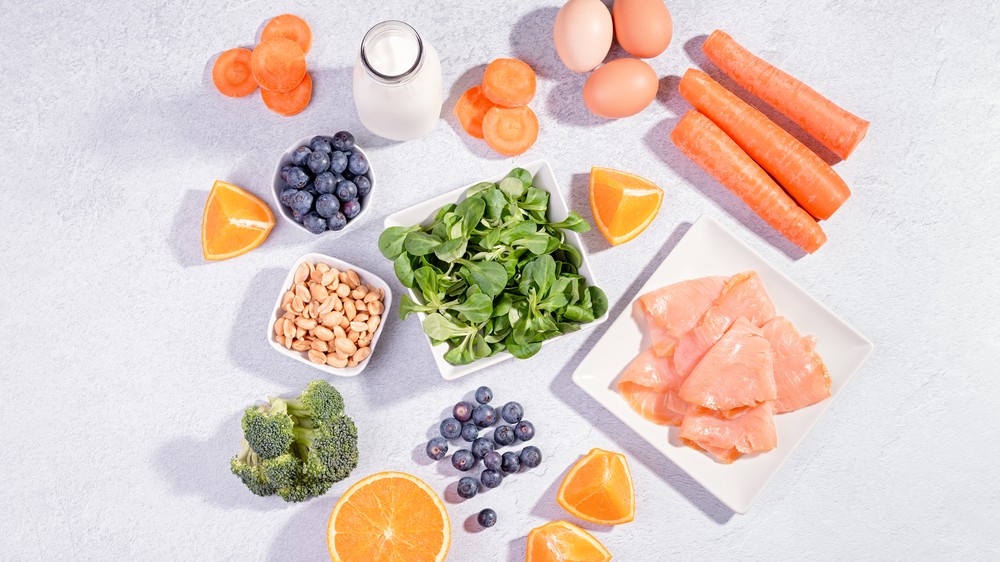
Parades, football, naps, food… what’s not to love about Thanksgiving? The foodiest of the holidays, Thanksgiving has a little bit of something for everybody. It’s also the perfect time of year for us to share our favorite eye-healthy eating tips! Believe it or not, your diet can affect more than just your weight. From joints to skin, hair, and your eyes, the things you eat can impact every aspect of your life.
Eating healthy is a balance of eating the right stuff and eating it in the right moderation. Too much of a good thing can easily turn into a bad thing. While old philosophies say your body is a temple, I like to think of it more like a car. Certain nutrients power certain things; your body sees the benefit when it’s all in balance. But when we think about eating healthy, our eyes usually go without attention. You might not think your diet can play a role in your eye health, but that’s why we’re here.
The general tips are the same no matter where you ask: cut down on saturated fats and trans fats, sugars and sodium. Eating more vegetables, whole fruits, grains, low-fat dairy and a variety of proteins can all help as well. These are simple things can help any diet get back on track and stay well-balanced. Keep in mind proportions, too. Half of your meal should be fruits and veggies, with a quarter for your protein and a quarter for your grain.
But you didn’t come here for general diet tips! No, you came because we have special diet tips! Eye diet tips! Your eyes are unique. They require and benefit from specific nutrients that can be found in plenty of foods if you’re looking in the right place. Foods that contain lutein and zeaxanthin, vitamin C and E, zinc, and copper keep your eyes healthy and can even cut down the risk of developing age-related macular degeneration (AMD) by 25% over five years.
Knowing the names of the nutrients is one thing, but you can’t exactly go to a grocery store and ask for the lutein and zeaxanthin aisle. One option is the AOA’s Feast Your Eyes booklet that has an entire breakdown of eye-healthy foods. But we also have some recommendations that you can add to your Thanksgiving shopping list!
Lutein and Zeaxanthin
These are usually leafy greens, root vegetables, and some other veggies that are coincidently in season right now! These are great for salads or as side dishes along with that perfect turkey.
Kale
Peas
Summer squash
Pumpkin
Brussels sprouts
Broccoli
Asparagus
Lettuce
Carrots
Pistachios
Vitamin C
Of all the vitamins, people are the most familiar with vitamin C. This important vitamin can be found in a lot of citrus fruits, but they can also be found in some more savory fruits and vegetables as well and can add some spectacular flavors to any dish.
Orange
Lime
Lemon
Guava
Cherries
Rosehips
Bell peppers
Currants
Spinach
Kiwi
Vitamin E
Vitamin E can usually be found in different grains and nuts and can be incorporated into a lot of Thanksgiving snacks and desserts (and one perfect toast topping).
Bran-based cereals
Granola
Almonds
Sunflower seeds
Rice Krispy treats
Bagels
Avocados
Zinc and Copper
Zinc and Copper can both be found in a lot of different types of meat and some starches. While turkey is more known for its high levels of tryptophan (perfect for napping), these meats can also be used to supplement the main course or replace the main course if turkey isn’t your thing.
Oysters
Beef
Crab
Lobster
Clams
Mushrooms
Sweet potatoes
Beans
Chicken
Cashews
Now that we’ve dropped some eye-health knowledge and probably lengthened your Thanksgiving shopping list, it’s time for you to go out into the cold and brave the crowds of people at the grocery store. But as you prepare for the big turkey day, remember: eating healthy can have huge benefits for your eyes, too. When we say “feast your eyes”, we mean it!







